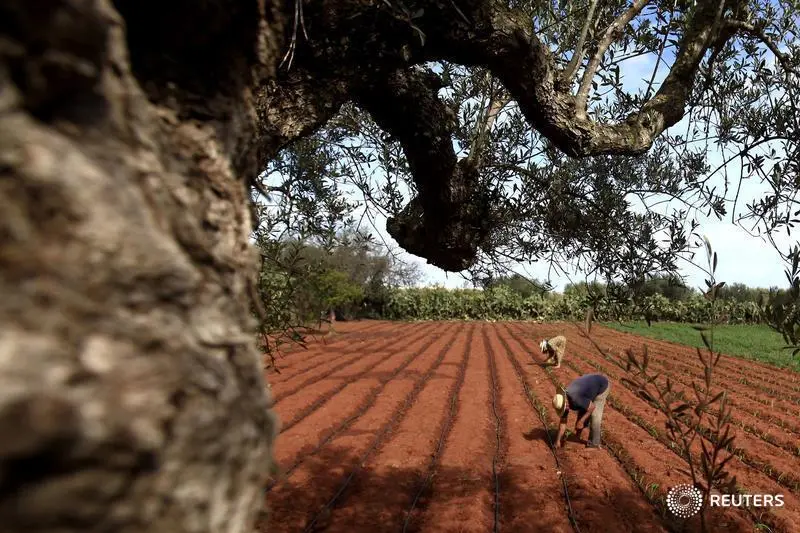PHOTO
The agriculture sector in Tunisia defied the odds last season as lower trade volumes yielded larger profits, driven by higher prices for some of its core products on international markets.
Revenues from fruit and vegetable exports rose by 13% during the 2016/17 harvest season, even as export volumes fell by 25%, according to the Ministry of Agriculture.
While security issues in Libya, one of the main buyers of Tunisia’s food exports, pushed down agricultural trade volumes in the 2016/17 season – which runs from October to May – these were more than offset by higher sale prices, the opening of other markets, and considerable growth in exports of onions and fennel.
Data released by the Ministry of Agriculture show Tunisia exported 1851 tonnes of onions this season, up more than six-fold on the previous year’s 247 tonnes, while fennel exports rose by 10 tonnes to reach 346 tonnes.
Date producers, too, have cause for cheer, as the high price of Tunisian dates on global markets has lifted profits. Revenues for the fruit expanded by 31.5% this season, though actual production rose by 8% to a volume of 87,000 tonnes, valued at TD453.6m (€166.4m).
The main export destination for Tunisian fresh produce is the EU, with a 69% share, followed by Africa (14%), Russia (13%) and GCC countries (3%).
The sector’s expansion has picked up momentum in recent years as Tunisian products have gained global recognition for their quality, allowing local producers to profit from a surge in sales of organic products in developed countries. Agriculture accounted for 10.4% of the country’s GDP in 2015, according to the most recent World Bank data available, up from 8.2% in 2010.
Organic growth
Organic agriculture has shown considerable growth in Tunisia over the last few years, with new production mainly directed at exports to Western consumer markets.
According to data issued jointly by the Tunisian Centre for the Promotion of Exports and the Directorate General for Organic Agriculture in November, Tunisia is Africa’s largest exporter of organic agricultural products after Uganda. Indeed, some 65% of the country’s 3000 organic farmers target their products exclusively at exports.
Among the most popular organic products exported by the country are Tunisian Maltese oranges, dates (Harissa, Bsissa, Deglet Ennour), aromatic and medicinal plants, wines and spirits, and olive oil.
Olive oil is by far the most popular of these, making up more than 84% of organic-market revenue in 2015, at TD290m (€107.1m).
This number is set to increase with regulations coming from the EU bloc. In the spring of last year, the European Parliament approved a tax waiver for olive oil imports from Tunisia into the EU – capped at 35,000 tonnes annually, for both this and last year – with a view to help stabilise the country’s economy.
The organic date market has also seen considerable growth: this season’s production of 5300 tonnes was worth TD35.4m (€12.9m), a 17.8% increase on the previous year.
Since 2009 Tunisia has been the only African country that is “recognised for the purpose of equivalence” to export organic products to the EU.
Moving forward
While Tunisian farmers have benefitted from favourable market conditions this season, government policies and support programmes promoting the sector may take some of the credit for the sector’s performance.
In mid-May, for example, the Union Tunisienne de l’Agriculture et de la Pêche and the Agricultural Education and Promotion Agency signed an agreement with Tunisian Solidarity Bank to create a programme supporting small agricultural enterprises.
Aimed at promoting growth in animal production, particularly the bovine and poultry sectors, the programme will finance the ideas of recent graduates from the Sidi Thabet Professional Education Centre, where 80 students attend classes each year.
Each project will receive between TD100,000 (€36,400) and TD150,000 (€54,600), to be paid back in seven years at a below-market interest rate of 7% per year.
By granting highly educated individuals access to seed capital for new projects, such initiatives could go a long way in opening Tunisia’s agriculture sector to new products and technologies, further boosting mechanisation and long-term growth.
© Oxford Business Group 2017





















